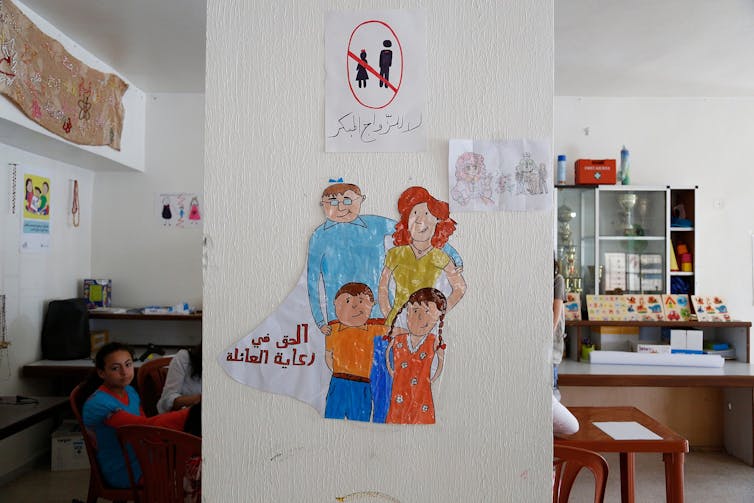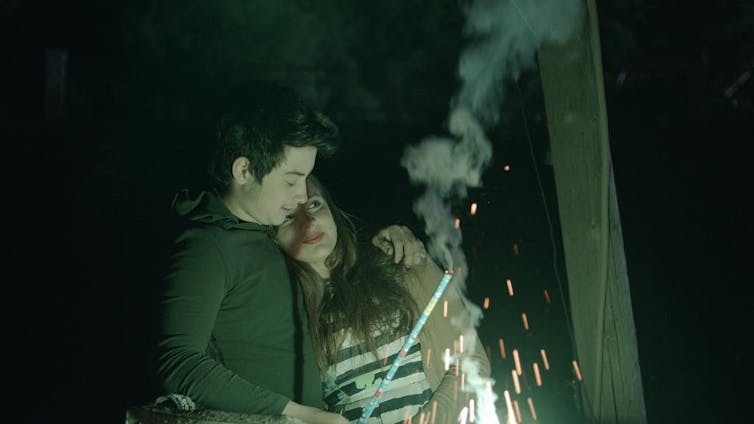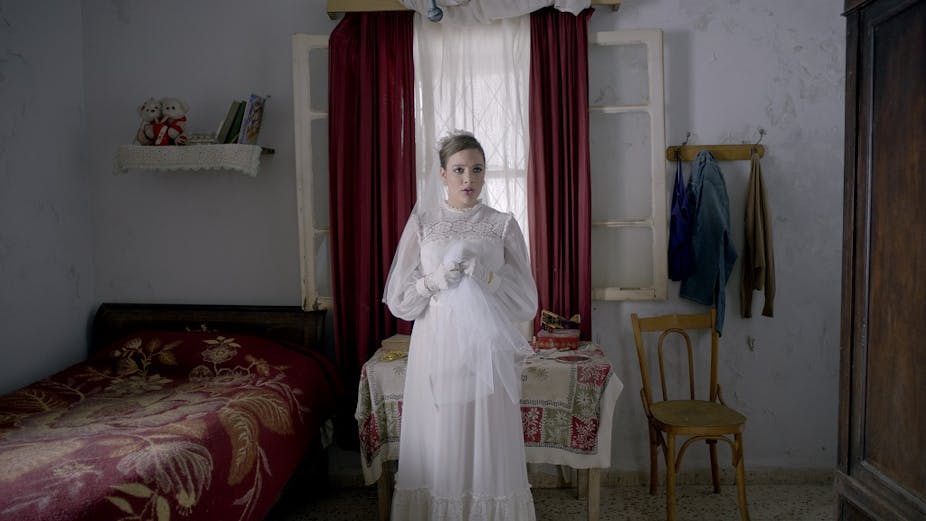In February 2018 a debate took place at the University of Saint-Esprit de Kaslik between the heads of three major religious communities in Lebanon, hoping to lead a change within local practices about child marriage.
A year ago, a draft law was proposed by activists and politicians to set a minimum age for marriage. A present, Lebanon does not have one. Earlier in 2017 several draft laws were submitted to parliament that would raise the minimum age to 18.
Renewed attention is being given to the issue of child marriage in Lebanon as increasing numbers of young refugee girls are being married off as a response to the conflict and forced displacement. A recent study done by the Women’s Refugee Commission (WRC) in Lebanon found that fear of gender-based violence (GBV) – and especially rape – drove many families to marry their daughters with the aim of “protecting their honour”. Many families also saw marriage as a way of ensuring that their daughters were in a more stable socioeconomic position than they would be if they remained single and in the familial household. Outside of refugee communities, nearly 6 percent of women in Lebanon between 20 to 24 years old were married before the age of 18.
Child marriage
Personal-status laws are the main issue: there are currently 18 formally recognised religious sects and 15 personal-status codes. These overwhelmingly discriminate against women across all sects, and do not guarantee basic rights, according to Human Rights Watch. A minimum age for marriage does exist in some of the personal-status codes, though the courts can choose to make exceptions in certain cases in favour of a lower age.
In allowing such marriages, Lebanon remains in violation of the Convention on the Rights of the Child, despite having ratified the agreement without reservations in 1991.
Civil society has been fighting this issue for the last few years, trying to pressure the Lebanese government into adopting a legal minimum age for marriage.
In 2014, the Institute for Women’s Studies in the Arab World (IWSAW) at the Lebanese American University (LAU) – which I lead – in collaboration with the National Commission for Lebanese Women (NCLW) organised and launched an advocacy campaign called Protect Underage Girls from Early Marriage. The Institute is now working with the Women’s Refugee Commission and Johns Hopkins to complete a research project on child marriage among Syrian refugees in Lebanon.

This year, representatives for Lebanon at the Committee of the Rights of the Child submitted a report on the country’s fulfilment of its obligations under the Convention on the Rights of the Child. According to an internal source, the issue of child marriage was heavily discussed by the experts on the committee.
Challenging societal perspectives
The fight to end child marriage in Lebanon is gaining momentum. Through several public campaigns, and continued support of the draft laws, child-safety organisations continue to address the issue of child marriage as an issue of human rights.
One such initiative brings fathers together to discuss the need to protect their daughters, and what marriage of a young girl can do to her future, and to the future of her family.
Other initiatives take a more artistic approach to raising awareness. The award-winning Lebanese filmmaker Khalil Dreyfus Zaarour, wrote, directed and produced Nour, a feature fiction film about forced child marriage, building on true stories of girls forced into marriage at a young age.
In the film, 15-year-old Nour is forced to marry Maurice, an older man whom she despises. Overnight, her carefree summer morphs into claustrophobic confinement and household chores. Nour mourns the loss of her childhood and scattered dreams.
Zaarour believes it to be his duty as a filmmaker to shed light on challenging human rights issues and expose inequalities – and he was particularly drawn to this issue. To ensure accuracy of the story, Zaarour met dozens of women, listened to their accounts and adapted it to fit the screen:
I want to fight for equality, to abolish patriarchy, to live in a world where women and men have the same rights and opportunities.
In the film, Nour abruptly has to deal with the forcible end of her childhood, a reality too many young girls must contend with well before they are prepared to assume the role of adults. More dangerous, these marriages likely force girls into sexual relationships they are not prepared for – and pregnancies that their young bodies cannot yet accommodate.
A draft law is not enough
While the draft laws are a positive step toward setting a minimum legal age of marriage across personal-status laws, there are still many obstacles. Lebanon’s unstable political situation remains a challenge, especially given the unexpected, albeit brief resignation of Prime Minister Saad Hariri and the upcoming parliamentary elections, tentatively scheduled for May 6.
Similarly, the Syrian refugee crisis continues to put pressure on an already-weakened Lebanese infrastructure. Both Hariri and President Michel Aoun have warned) of the dire consequences Lebanon will face politically and socioeconomically if the country does not receive the necessary support from both the international and regional communities.
These issues all work to stall any mobilisation around the issue of child marriage in Lebanon. The current focus across media platforms is overwhelmingly dedicated to upcoming parliamentary elections, with gender issues playing a negligible role.

Challenges for feminists
Though proponents of a minimum legal age of marriage remain active, there are a number of factors stalling progress. A large segment of the population consider child marriage to be an issue only among refugee populations. Others argue over what exactly the minimum legal age should be, and whether or not this should be something enforced across personal-status laws. Given the challenges and Lebanon’s patchy track record in terms of implementing laws that prioritise protection and prevention for vulnerable women and girls, activists remain sceptical.
Another challenge is the terminology in use. We refer interchangeably to “early marriage”, “child marriage”, “forced marriage” and so on. The reality is that these marriages affect girls, and marriage of a girl under 18 likely entails a sexual relationship – in which case this is to be considered child rape. Our concern is that the interchangeable (and rather benign) terminology fails to convey the seriousness of this crime.
Meanwhile, films like Nour may reach a wider audience and could even result in legislative changes in Lebanon – and beyond. As Zaarour concludes:
My goal is to raise these issues on the screen and change the way people think about issues that are harmful and discriminatory. It’s why I focused on child marriage – and also is the driving force behind my next film. I want people to accept and respect each other no matter how different they are.
“Nour” was screened on February 26 at the Institute for Women Studies in the Arab World (IWSAW) at the Lebanese American University in Beirut.


